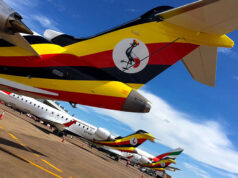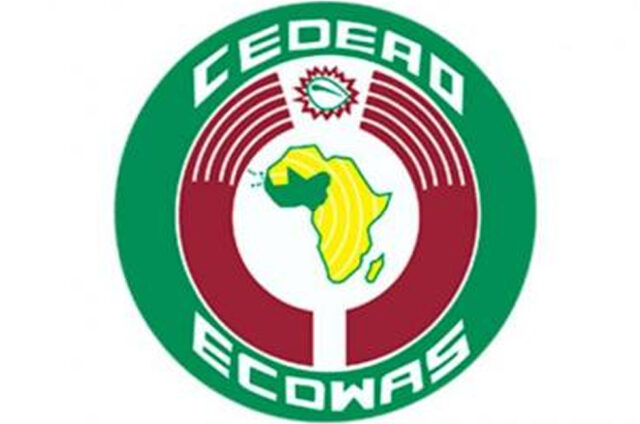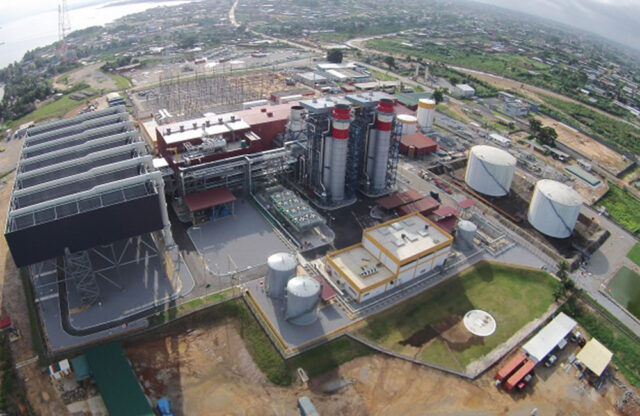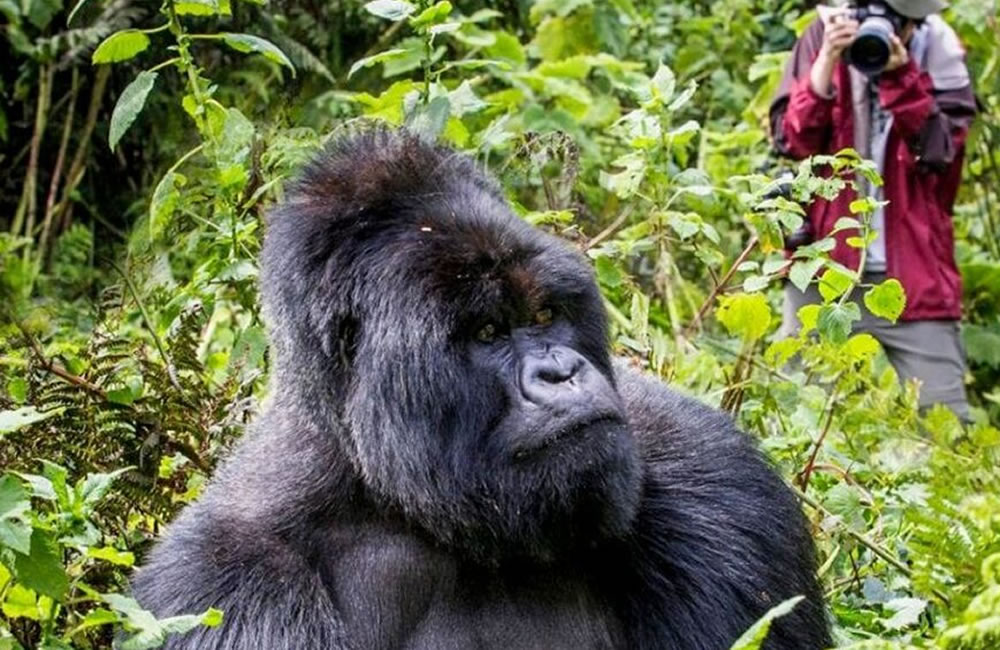This week French energy giant Total became the latest global target for the Fridays for Future Climate Strikes, when protesters attacked it for human rights violations, greenwashing, and ecocide connected with its destructive fossil fuel projects across Africa.
Total was under attack throughout the past week in protests across Africa for its leadership position in driving three major threats to global warming and the environment. Though the company has been involved in African fossil fuel projects for some time, the latest attacks were for the company’s new triple-threat leadership of the East African Crude Oil Pipeline Project, the Tilenga Development Project which will ravage the environment through major drilling in dozens of locations throughout Uganda, and the Mozambique Liquefied Natural Gas project.
The East African Crude Oil Pipeline Project (EACOP), if it is allowed to be built, will bring 230,000 barrels of crude oil every day from drilling areas in western Uganda’s Lake Albert region to Tanga, the Tanzanian port city located on the Indian Ocean. If the protesters fail in their efforts to force Uganda’s hand to stall the pipeline, it will feature the world’s largest electrically heated pipeline and will run almost 900 miles (1,450 kilometers) across much ecologically sensitive terrain. The total cost of this project is estimated at $3.5 billion.
According to environmentalist studies, the pipeline will impact some 770 square miles (2,000) square kilometers of currently protected land in the region. An estimated one-quarter of that land is currently the home of endangered species such as African savanna elephants, lions, and eastern chimpanzees. Within Tanzania, the pipeline also travels through seven forest preserves and the Wembere Steppe, an important biodiversity habitat, as well as now at-risk marine areas near the Tanga port.
Despite the obvious toxic nature of the project, Total says the EACOP development will “generate a positive net impact on biodiversity,” something even Total’s business partners have not had the audacity to suggest.
“Imagine a tropical version of the Alaskan oil pipeline, only longer,” wrote environmental author Fred Pearce about EACOP. “And passing through critical elephant, lion, and chimpanzee habitats and 12 forest reserves, skirting Africa’s largest lake, and crossing more than 200 rivers and thousands of farms before reaching the Indian Ocean—where its version of the Exxon Valdez disaster would pour crude oil into some of Africa’s most biodiverse mangroves and coral reefs.”
As the EACOP project became more of a reality, in 2017 the World Wide Fund for Nature Uganda group also called out the pipeline as “likely to lead to significant disturbance, fragmentation, and increased poaching within important biodiversity and natural habitats.”
A report from the NGO Osfam published in 2020 said the pipeline “will cross poor, rural communities in both Uganda and Tanzania that lack the political and financial capital of the project stakeholders.”
Unfortunately for those poor who will be disproportionately affected by what is happening, Oxfam continued, there are unfortunately “lopsided complications of this power dynamic [which are]…well-documented in similar extractive industry projects.”
“Powerful companies are often able to hide their operations behind local contractors and permissive government authorities,” the report went on. “Often the only hope that local communities have for remediation or justice is through local government bodies that are often weak, fragile, or captured by corporate and national interests.”
As one Ugandan farmer in Rakai located near the Tanzanian border said in an interview recently, “when this pipeline project came, they promised us too many things. Up to now they have done nothing.”
The project is also expected to cause breaches of the divide between human populations and those of the natural species they share the land with at this time.
“We have always had a problem of human-wildlife conflict in the village,” said Elly Munguryeki, a farmer who lives on the borders of Murchison Falls National Park, in an interview with reporters just a few weeks ago.
“With drilling and road construction across the park, the invasions are more frequent,” Munguryeki added. “We keep reporting the losses to park authorities but nothing happens. Each night a herd of buffalo, baboons, and hippos from the park would invade my farm and neighboring plots and eat our crops until dawn. Whatever they left would be eaten by baboons and wild pigs during the day, forcing us to harvest premature crops.”
Total responds to criticism like this by claiming it carefully crafted the route of the pipeline to “minimize the number of residents relocated,” which NGOs and local residents dismiss as total fantasy.
In an April 2021 report published by the online news source Mongabay, on the human side of the equation alone an estimated 12,000 families will be kicked off their homeland to make room for yet another major and unneeded fossil fuel project.
The second target of the protesters’ ire is the Tilgenga Oil Fields Development Project. Already well under way, if this project is allowed to finish construction, involves the construction of 400 environmentally-risky water injector and projection wells in six major oil fields across Uganda, plus a central processing facility and almost 100 miles (160 kilometers) of flowline infrastructure to interconnect the system. Those oil fields are located in Jobi-Rii, Ngiri, Gunya, Kasemene-Wahrindi, Kigogole-Ngara, and Nsoga. 31 well pads at those fields will be used as the base for the new wells.
The various fields are positioned in various locations not far from the Victoria Nile River. The Jobi-Rii field is just north of it and the others are on its southern end. Part of the project will take place in the rich biodiverse lands of Murchison Falls National Park.
The central processing field, located in the Ngwedo sub-county of the Buliisa distrct, will process an estimated 190,000 barrels of oil a day via a separation process which will extract the oil from a mix of water and gas. The gas, which is likely to dump significant carbon emissions into the atmosphere as the mix is processed, will be used to produce electricity to run the facility. The used water which is separated off from the oil will be re-injected into the oil fields.
The Tilenga Oil Fields Development Project is a joint effort by Total SE, a division of Total France, the China National Offshore Oil Corporation (CNOOC), and the Uganda National Oil Company (UNOC).
The third major effort in Total’s plans in Africa that the protesters went after yesterday was its $20 billion liquefied natural gas project planned for Mozambique. Total bought a $3.9 billion stake in the project in 2019 and had hoped to begin exporting the LNG fuel by the end of 2024. Even the first phase of this initiative is expected to produce greater than 13 million tons of LNG per year.
Total ended up suspending work on the LNG processing and distribution program in Mozambique after a March 2021 attack which happened to be in the same area where construction of the LNG infrastructure was taking place. The attack was from militants linked to the Islamic State and had nothing to do with LNG protests.
Total expects to continue work on this project when the violence eases up.
It because of the combined greed, corruption, and mass ecological damage that Total and its co-conspirators in governments on the continent, in partnership with China, and with local industrial partners, that protests against Total grew hot this past week throughout Africa.
The peak of the protests took place on Tuesday, celebrated annually as Africa Day, as a reminder to all of what is at stake as Total’s activities continue to deploy.
Protests took place in various-sized gatherings at Total petrol stations in Benin, the Democratic Republic of the Congo, Egypt, Ghana, Kenya, Nigeria, Togo, and Uganda.
Andre Moliro, an activist from the Democratic Republic of the Congo, said to reporters much of what sums up the anger and frustration Africans have with the damage Total is creating in multiple regions on the continent.
“Total’s fossil fuel developments pose grave risks to protected environments, water sources, and wetlands in the Great Lakes and East Africa regions,” he said.
“Communities have been raising concerns on the impact of oil extraction on Lake Albert fisheries and the disastrous consequences of an oil spill in Lake Victoria, that would affect millions of people that rely on the two lakes for their livelihoods, watersheds for drinking water, and food production,” he continued.
The protests are proceeding, despite the Uganda government actively supporting its oil drilling partners via police actions against anyone who might stand in the way of bringing the landlocked Uganda its expected billions of new revenues from the various projects in that country.
On May 24, for example, police in Buliisa arrested Ugandan human rights defender Maxwell Atuhura, who also works with the African Institute for Energy Governance (AFIEGO), and Federica Marsi, an Italian journalist, just as both were on their way to meet with local community members.
AFIEGO is one of several NGOs who have sued Total for its environmental crimes within Africa.
Journalist Marsi was released from custody later the same day he was arrested. Police authorities directed him to get out of the oil region immediately, threatening him with the warning that he should do so “before bad things happen.”
Atuthura is still in the hands of the police. The World Organization Against Torture has issued a global demand for help to ensure Atuthura’s immediate and safe release.
Despite the risks to their own personal safety, the urgency and seriousness of the cause is what keeps the protesters speaking up.
“We cannot drink oil, said Venessa Nakate, founder of the Rise Up Movement and an Ugandan climate justice activist. “This is why we cannot accept the construction of the East African Crude Oil Pipeline. It is going to cause massive displacement of people [and the] destruction of ecosystems and wildlife habitats.”
“We have no future in extraction of oil because it only means destroying the livelihoods of the people and the planet,” Nakate continued. “It is time to choose people above pipelines. It is time to rise up for the people and the planet.”











